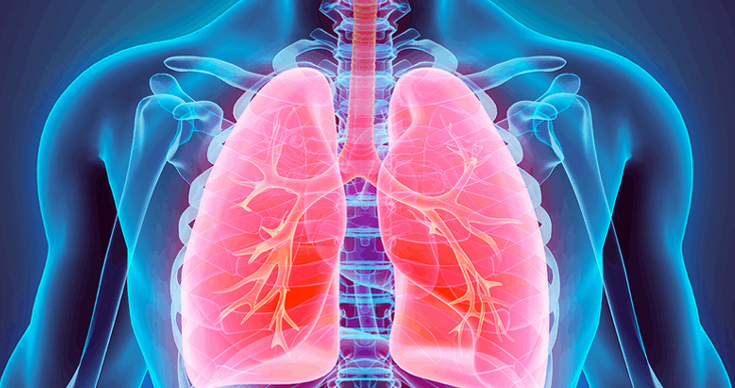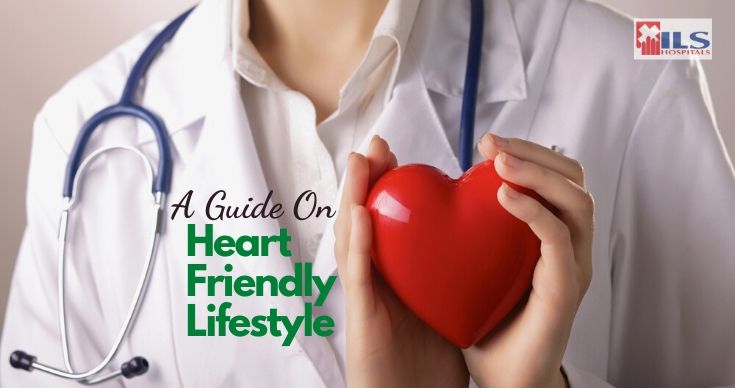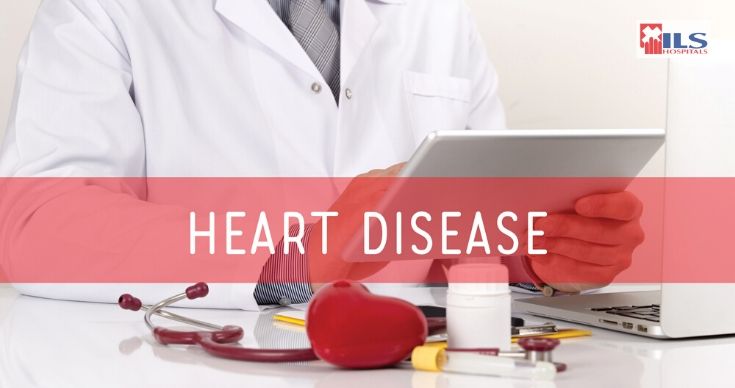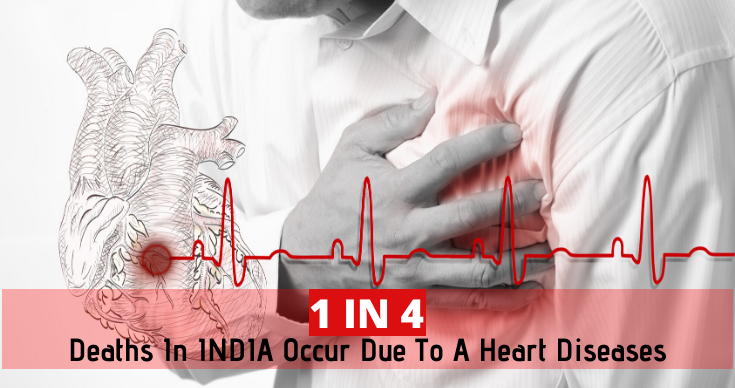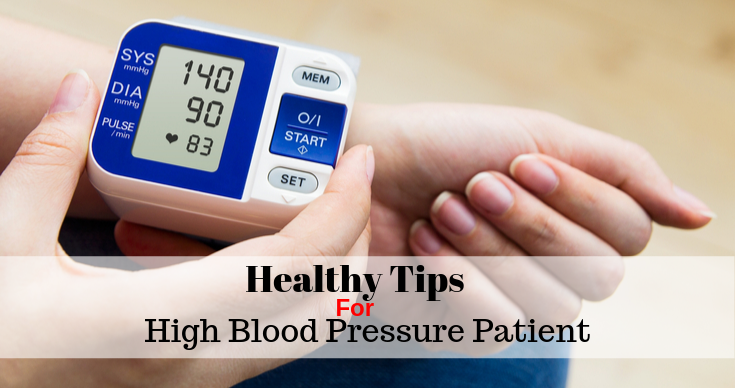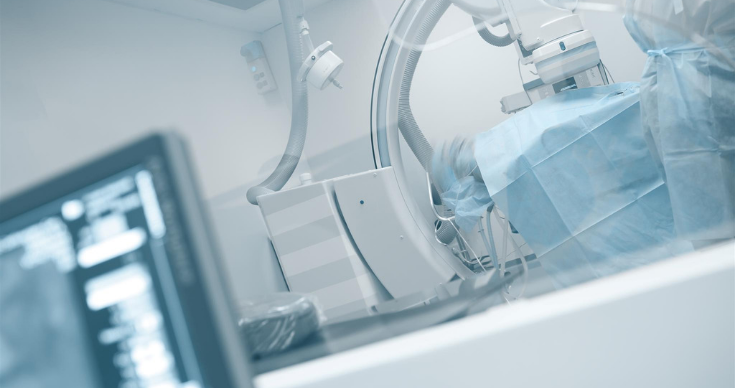An insight into Lung Cancer, its types and complications
One of the scariest diseases that the world has been fighting is cancer – a disease that destroys the tissues in the body where the abnormal cells divide uncontrollably. Lung cancer is the leading cause of cancer deaths worldwide. It is essentially the growth of deformed cells in the lung. It is riskier in nature as the detection usually happens in the latter stage, i.e. when it reaches the advanced stage. But for an early stage lung cancer, the survival rate is better as compared. Many scientists are working rigorously to examine the risk factors and discovering the protective factors.
It is no news that people who smoke have the greatest risks of lung cancer but that does not account to the fact that non-smokers are free from the risk.
Types of Lung Cancer
Alike all the other diseases, doctors have divided lung cancer into two major types. The two types of lung cancer include small cell lung cancer, exclusively in heavy smokers and non-small cell lung cancer, an umbrella term for several types of lung cancers. While non-small cell lung cancers include squamous cell carcinoma, adenocarcinoma and large cell carcinoma.
The complications caused by lung cancer can be as below:

- Shortness of breath – The cancer grows and blocks the airways that help people breathe, thus, shortness in breath. It also causes fluid to collect around the lungs thus not allowing the expansion during inhalation.
- Blood in cough – One of the rather gory complications are when the cancer causes bleeding in the airway, known as hemoptysis. But treatments are available to control bleeding
- Pleural effusion – When the fluid accumulates in the space that surrounds the affected lung in the chest cavity, is known was pleural effusion, Shortness is breath often results from this. Treatments are available to drain the fluid from your chest and minimise the risk.
- Metastasis – When the cancer spreads to the other parts of body, it is known as metastasis. The early symptoms are pain, nausea and headaches.
When should you visit the doctor?
If the signs are persistent, it is advisable to make an appointment with your doctor. Pulmonology and chest medicine is the medical specialty dealing with detecting and treating illnesses and conditions involving the respiratory tract. Many a time, these patients require intensive medical care and life support.
Pulmonologists address the following conditions
- Asthma
- Rheumatoid Lung Disease
- Severe Lung Infection
- Bronchitis
- Occupational Lung Disease
- Chronic Obstructive Pulmonary Disease (COPD)
- Pulmonary Fibrosis
- Lung Cancer
Pulmonologists perform a range of diagnostic tests to evaluate the nature of the underlying condition and offer treatment accordingly. Some of them are as follows
- Blood Profile Investigation
- Pulmonary Function Tests
- Chest X-ray
- CT Scanning
- Spirometry
- Scintigraphy
- PET (Positron Emission Tomography)
- Sleep Studies
- Bronchoscopy
At ILS Hospitals, the expert pulmonologist offers the best treatment for many pulmonological disorder. ILS Hospitals provides advanced diagnostic services with round the clock doctors and state of the art Operation Theatres. Our renowned surgeons and experienced team of paramedics ensure the complete safety of all our patients. Please visit www.ilshospitals.com/pulmonology-and-chest-medicine/or call us on +91 90514 60000.

ILS Hospitals’ Guide On A Heart-Friendly Lifestyle
Cardiovascular diseases are on the rise in our country. It’s of paramount importance to keep your heart fit and healthy.
ILS Hospitals, one of the best hospitals in Kolkata and Agartala cares for your heart and would like to guide you on having a heart-friendly lifestyle.
Consume a highly nutritious diet
Eating a nutritious diet is not only good for your heart but also for your entire body. Consume lots of whole grains, fruits, vegetables, legumes, lentils, seafood, poultry, dairy, nuts, seeds, and so on.
Avoid unhealthy foods
Some foods are not good for your heart – salty, sugary, fried, and fatty foods. Either avoid or limit their consumption. White flour or maida is strictly not recommended for a healthy heart.
Be physically active
Major reason for heart ailment is due tounhealthy lifestyle. Shun your sedentary lifestyle and involve yourself in favourite physical activities. Get into some sports, dance, do aerobics or swimming.
Stay away from stress
We live in a stressful world and it is needless to say that stress causes you more harm than you can imagine. Alleviate stress by practising stress-busting techniques, like listening to music, singing, painting, reading, creative writing, spending time with your pet, do yoga and meditation.
Quit unhealthy habits
In the long run, your unhealthy habits can prove detrimental to your heart. Some unhealthy habits like smoking, excess alcohol consumption, taking drugs, sleeping late at night, getting angry on trivial issues, etc.
Get regular medical check-ups
You need to keep your blood sugar and blood pressure levels at check. For that, you must get medical check-up on a regular basis. Visit a cardiologist annually to ensure that your heart remains healthy.
For any cardiac or medical emergency, visit ILS Hospitals in Kolkata and Agartala.
Signs Of Underlying Heart Disease By The Best Heart Hospital In Kolkata
Cardiovascular conditions are very common in India. We’ve discussed why in this blog: Why Are Indians So Vulnerable To Heart Diseases? Every underlying disease show tell-tale signs for the individual to observe. If the individual observes and takes prompt action then there’s a chance of an effective proper treatment.
The heart is a vital organ that helps in purifying the blood and supplies the body with oxygen and other nutrients. As per expert cardiologists, many patients ignore the body’s signals of underlying heart disease at the crucial initial levels. So, ILS Hospitals, one of the best heart hospitals in Kolkata and Agartala will enlighten you about the signs that indicate an underlying heart disease.
Chronic tiredness
Fatigue after any laborious activity is understandable but constant fatigue when you do not live an active lifestyle is a matter of concern. Chronic exhaustion can indicate towards an underlying cardiovascular condition.
Shortness of breath
Breathlessness can happen due to various reasons. Shortness of breath after climbing forty stairs makes sense, otherwise, breathlessness for no apparent cause is a medical emergency.
Chest pain and discomfort
Chest pain accompanied by shortness of breath can be a sign of serious cardiovascular condition. Immediately visit the medical emergency room of your nearest hospital.
Irregular heartbeat
Heart palpitations usually happen after a vigorous workout but that does not mean it is not associated with any medical condition. Observe your heartbeat and visit a cardiologist if you have frequent heart palpitations.
Unusual sweating
Cold sweats are not normal. They can hint at an underlying heart disease.
Swollen feet
If you have swollen feet and ankles, consult a medical professional for timely diagnosis and treatment.
Unexpected body aches
Body aches that are sudden and without any reason should not be overlooked. Unexpected body aches can be due to an insufficient supply of blood to the cardiac muscle.
If you encounter the aforementioned signs in your body, do not delay professional medical supervision. Visit ILS Hospitals, one of the best heart hospitals in Agartala and Kolkata to get proper diagnosis and treatment from our expert cardiologists.
Are You More Susceptible To Heart Attacks If You’re A Man? Let’s Discuss
A distressing fact to convey is that heart attacks are getting more common in our country. The prevalence is strong among men as they get their first heart attack at a younger age compared to women. We do not imply that women cannot get a heart attack. Women usually deals with severe heart attacks after menopause. For any heart-related conditions, the respective person should visit the best heart hospital as the heart deserves timely and appropriate medical supervision. In this blog, we will discover why men are at more risk when it comes to heart attacks. The heart’s anatomy of men and women differ from each other. Women have smaller hearts than men and have finer veins, the response to stressful events of both the gender is contrasting as well. When a man encounters a stressful situation, his blood pressure levels rise, whereas in case of women, instead of blood pressure, we find an increase in the pulse rate which makes her heart to pump more blood. It is interesting to know that symptoms of heart attack are distinct for both the genders as well.
The primary reason that shields women from heart attacks at an early age is the presence of female hormone estrogen, the levels of estrogen drops when a woman enters or is about to enter her menopausal phase. However, after menopause, the risk of women getting a heart attack escalates, so women at the age-group of 50 – 60s should take special care of themselves.
We have discovered that the fault lies in the hormones, which makes men more susceptible to heart attacks. Though there’s a greater chance of men getting a heart attack, surely, not all men might get one in their lives. Let’s find out apart from your gender, are there any other risk factors?
So, what factors contribute to cause heart attacks in men? Read the points below to find out if you’re at a risk of experiencing a heart attack:
-
High blood pressure or hypertension
-
High blood cholesterol
-
Diabetes
-
Previous cardiovascular conditions
-
Chronic stress
-
Obesity
-
Consumption of alcohol
-
Smoking
-
Poor nutrition
-
Inactive lifestyle
-
Social isolation
-
Genetics.
People with underlying cardiovascular conditions should be extra watchful about their health. If you notice symptoms like chest discomfort, abnormal sweating, fatigue and irregular heartbeat, rush to ILS Hospitals, one of the best heart hospitals in Kolkata. Because your heart health matters a lot!
Why Are Indians So Vulnerable To Heart Diseases?
We only have one heart and it’s our sole responsibility to take the best care of our heart to make it healthy and keep it in good physical condition. Sadly, there’s an incessant upsurge in heart-related conditions among Indians.
The question that comes to our mind after knowing this fact is why Indians are more susceptible to heart diseases and cardiac emergencies than any other ethnicity? Today, we will talk about 6 reasons why more people are suffering from heart-diseases at an increasing rate in the Indian sub-continent.
1. Chronic stress and hypertension:
Our modern lifestyle is comfortable but stressful. People are constantly stressed about their career, daily commute, personal life and financial conditions. Constant stress is the supreme cause of hypertension or high blood pressure. Healthy blood pressure for an average human is 120/80 mmHg. To manage stress, you should do the following things
– Maintain healthy relationships
– Participate in physical activities
– Eat clean and healthy food
– Get adequate sleep every night
– Practice relaxation techniques.
2. Unhealthy lifestyle choices:
We all know that an unhealthy lifestyle does not benefit our body but still we indulge in them then and now. An unhealthy lifestyle is a lifestyle in which you have harmful habits like smoking, consuming alcohol, eating junk and fast food, and being physically indolent. Take an oath that you would not choose or try to avoid this afore-mentioned lifestyle for yourself.
3. Diabetes:
Diabetes has become a common disease in India and that leads to many cardiovascular diseases. Getting diabetes treatment is paramount as uncontrolled diabetes cause impaired blood vessels of the heart and other vital organs.
4. Obesity:
Indians are getting obese day by day due to various reasons. Many people are suffering from class 3 obesity which can be treated with a bariatric or weight loss surgery.
5. Congenital heart defects:
Many children in India are born with heart abnormalities that lead to serious cardiovascular conditions if not timely diagnosed. It is one of the main factors of increasing heart diseases in our country.
6. Genetic makeup:
Many heart diseases are hereditary and nobody can undo it. Your genetic makeup determines the risk of you or your children inheriting heart-related conditions.
Regrettably, we Indians match the criteria of all the above-mentioned points, and that leads us to be more vulnerable to cardiovascular diseases. If you’ve any heart-related conditions you can easily come to ILS Hospitals, one of the best heart hospitals in Kolkata for your diagnosis and treatment. We will provide you with proper medical advice appropriate for your condition.
Follow These Healthy Tips If You Have High Blood Pressure
High blood pressure is a condition in which the blood produces a lot of pressure in the artery walls, an important component of your blood vessels.
If your blood pressure reading exceeds the normal blood pressure range of 120/80, then you have high blood pressure which requires immediate attention. You can check your blood pressure from any good hospitals in Kolkata or use BP monitoring machines at home. There are many reasons for high blood pressure like:
-
Stress
-
Obesity
-
Poor nutrition
-
Chronic diseases and disorders like diabetes, thyroid, kidney diseases, congenital heart abnormalities etc.
-
Sleep apnea
-
High alcohol consumption
-
High cholesterol
-
Smoking
-
Lack of physical movement
-
Unhealthy lifestyle
-
Old age
High blood pressure is a serious condition so maintaining a healthy blood pressure is important for everyone. If you are suffering from high blood pressure, follow these healthy tips as shown below:
-
Maintain a healthy body weight: Being overweight or obese is linked with high blood pressure. So, do your best to have a healthy BMI (Body Mass Index) by following a healthy lifestyle and by not being either underweight or overweight.
-
Stay active: Participate in regular physical activities to lower your high blood pressure. Do activities like walking, cycling, dancing, swimming, yoga and so on. The more you move, the better it is for your blood pressure.
-
Eat a DASH diet: Have a Dash (Dietary Approaches to Stop Hypertension) diet which is a healthy and balanced diet suitable for people with high blood pressure. The DASH diet includes whole grains, fruits, vegetables, lean meats, fish and poultry, nuts and bean and low-fat dairy or no-fat dairy products, low-sodium content and high vitamins and minerals.
-
Sodium-restricted diet: The less sodium you consume, the more your blood pressure will lower so avoid high-sodium foods and beverages. Also, do not add or sprinkle salt on top of your foods if you have high blood pressure or hypertension.
-
Avoid highly-processed foods: High processed foods have a high sodium-content so do not buy them the next time you visit your grocery store.
-
Quit smoking: Smoking has no health benefits and it is responsible for high blood pressure and heart diseases. So, stop smoking right now.
-
Drink less alcohol: Too much alcohol consumption can raise your already alarming blood pressure. So, limit the amount of alcohol you consume and aim to stop it altogether.
-
Be stress-free: It is needless to say that stress causes your blood pressure to increase at an unhealthy level. Try to avoid stress as much as you can because your life matters more than anything in this world.
-
Get regular high-blood pressure check-ups: Visit the best hospital in Kolkata for your monthly blood pressure check-ups. It is important to keep a tab on your blood pressure readings if you are already suffering from hypertension.
In conclusion, if you follow these healthy tips you will see a difference in your blood pressure levels. If your hypertension still does not improve then it’s time for you to go to a heart specialist or cardiologist to find the underlying cause behind your high levels of blood pressure. We are one of the best heart hospitals in Kolkata.
A Brief Introduction To Cardiac Catheterization
The heart is a wonderful organ that performs the crucial function of pumping blood into the body. Sometimes it happens that the functions of the heart get affected due to some illness or defect. Then it requires extensive treatment and accurate diagnosis, which plays an important role in keeping it healthy. Thus, today, we will discuss one particular diagnostic procedure, the cardiac catheterization.
What Is Cardiac Catheterization?
Cardiac catheterization is a diagnostic procedure that is available in many good heart hospitals, to evaluate the working condition of the heart. It can also evaluate the condition of the heart muscle, valves and the coronary arteries along with the pressure and oxygen level of the blood within the arteries. It can also locate the regions where the arteries get narrowed and can also detect birth defects in the heart if any. Moreover, it can collect some tissues from the heart, as a sample for biopsy.
The procedure is carried out in a cardiac catheterization lab or more commonly known as the cath lab. It helps the doctors identify the problems that are present within the heart or its arteries. It also can be used to unclog the blocked arteries.
Medical Procedures That Can Be Done During Cardiac Catheterization?
Several medical procedures can be carried out simultaneously by a cardiologist, during a session of cardiac catheterization. These include a range of procedure to fix a blockage in the heart such as coronary angioplasty, coronary stenting, balloon angioplasty. It is also used to fix any holes present in the heart structure along with repairing /replacing any valve. Procedures like ablation to treat arrhythmia can also be carried out with it.
How Is It Carried Out?
This is a non -invasive diagnostic technique, even though we have mentioned the catheters is pushed through the blood vessel. It is said so because the incisions are not made on or near the heart muscle. A thin, hollow cannula, known as the catheter is inserted through either an artery or vein. Usually, the site for this is the groin, arm or neck. It is then inserted further to reach the heart. This movement is tracked through the x-ray machine that is simultaneously used during cardiac catheterization.
Once the procedure is finished, the catheter and their equipment are retracted back and the incision is stitched closed.
Usually, the procedure is done while the patient is still awake, but they are given some sedatives to help them manage the pain. However, for procedures like valve repairs, and ablation, general anesthesia is administrated. The procedure mostly does not have any complications. Moreover, the recovery is quite fast and thus the patients can return to their home the same day. But, they might be kept under observation for a couple of more days, if the doctors find it necessary. Moreover, there is rarely any chance of developing any long term complication from it.
ILS Hospitals Dum Dum offers advance cath lab services. In case you have been referred to have cardiac catheterization, come straight to ILS Hospitals, one of the best heart hospitals in Kolkata, and get the best treatment from there, by the expert cardiologists.
Risk Factors For Premature Death That You Should Be Aware Of
Lifespan is defined as the time period which a healthy individual should live under normal circumstance. One can increase their life expectancy by leading a healthy lifestyle and availing the best treatment in case of any illness. Life expectancy, however, can also get disrupted due to several health and environmental factors. While one can do very little about any accidents, taking some precautions can help people avoid certain life-threatening diseases.
Today we are sharing some of the most common cause of premature death, that can be controlled if proper measures are taken on time.
1. Heart Ailments
The heart is a crucial organ that pumps blood throughout our body and performs many other functions. Deadly heart conditions like a cardiac arrest or heart attack are some of the most leading causes of death across the globe. Moreover, chronic heart condition can also increase the probability of premature death, due to several reasons. As per cardiologists of the best heart hospitals, most heart ailments are closely related to several risk factors such as obesity, smoking, high blood pressure, etc. Thus, controlling these facts can help prevent or at least control the possibility of deadly heart ailments.
2. Stroke
Stroke is yet another leading cause of death all around the world. Even though stroke is a deadly condition, identifying its symptoms and rushing to the nearest medical emergency unit on time can save at least 30 % of the patients effectively. However, proper measures such as managing one’s blood pressure and limiting the intake of salt can mitigate the possibility of stroke significantly. Moreover, people with cholesterol and other risk factors for stroke and brain diseases should seek routine screening. This will help people managing such a crisis, in case they trigger.
3. Lung And Respiratory Diseases
The number of people consuming some or the other form of tobacco is significantly high. Thus, it comes as no surprise that a rather significant number of premature death happens due to some lung or respiratory condition. Lung cancer is a leading cause of death all around the world. In India, the number of death due to fatal lung condition is mostly either due to consuming tobacco products or working under the exposure to harmful gases. Taking adequate measures against it can help immensely to avoid any severe condition.
4. Stress
Though it might sound like an overrated condition in this list, stress actually harms the body in more than one ways. Most of the peoples deal with stress and its consequences, these days. Especially persistent stress that affects daily activity like sleep and diet can do very severe harm. In fact, it is not uncommon to find that people with stress often lose sleep, along with other complications like anxiety, nervous breakdown, and many others.
Timely measures and commitment towards a healthier life ahead are very crucial to deal with these and other reasons for premature death. ILS Hospitals offers quality treatment for a wide range of illnesses that affects one’s life expectancy, directly or indirectly.
3 Most Congenital Heart Disorders as per Experts Cardiologists
Heart ailments are becoming extremely prevalent these days. While some of these are acquired due to a sedentary lifestyle or some underlying illnesses, some heart defects are present from the time of birth itself. These are referred to as congenital heart diseases. A heart specialist can detect and address them timely. Let us discuss some common congenital heart diseases, in brief, but let’s first understand the structure of heart a little.
The heart is a pumping device of the body. It contains 4 valves, the upper chambers are called left and right auricles and lower chambers are called left and right ventricles. The blood circulated between the ‘body and the heart’ and between the ‘lung and the heart’ to facilitate the exchange of oxygen and carbon dioxide in the body.
Here we present the 3 most common congenital defects as explained by cardiologists.
1. Ventricular Septal Defect (VSD)
Almost 2 in every 10 cases of congenital birth defects is due to ventricular septal defect. VSDs are holes that are present between the lowers two ventricles of the heart. The size might vary from tiny to large and so is its severity (the larger the hole, the more the chances of the baby to develop cardiac ailments). It can be diagnosed by tracing an extra heartbeat in the cardiac cycle, but several babies show no symptoms, making its diagnosis quite tricky.
2. Pulmonary Valve Stenosis
It is a group of illnesses that are characterized by the ineffective flow of blood from the right ventricle to the lungs. Often it is due to the abnormal structure of the heart valves (which ensures the backflow of blood does not occur). These deformities lead to over-exhaustion of the ventricular muscle and cause extra pressure built up on the right side of the heart. Apart from a murmur, an echocardiogram might be needed to diagnose it effectively.
3. Aortic Valve Stenosis
This heart deformity comprises of a significant proportion of congenital heart defects. It develops within the first 8 weeks of pregnancy. The defect arises in the aortic valve (the final valve junction before the blood is pumped out of the heart. This obstruction can cause pressure build in the heart that can lead to thickening of the muscle and over the time, it can lead to enlargement of the heart. Aortic valve stenosis is detected more effectively through an echocardiogram. Cardiac catheterization or surgery might be required for its treatment.
Read more – Importance Of Cath Lab and Cardiac Catheterization
At ILS Hospitals, we address congenital defects for both inborn and outborn babies. Look out for the symptoms such as bluish skin, rapid breathing, fatigue and poor weight gain in your baby, consider getting a consultation with a pediatrician. The timely measure can treat them all effectively, while unresolved congenital defects might pose as a threat in the future.
Angioplasty in Nutshell – What it is and Where Should you Avail it?
The heart is a muscular organ that acts as a pumping device for the circulation of blood in the body, along with the other elements of the circulatory system. Many times, some complications lead to a cardiac emergency and a timely action of good hospitals can deal with it effectively. To avoid such mishaps, it is always recommended to seek routine consultations, screenings, and treatment from a descent cardiologist, from time to time.
Let’s understand about a very special cardiological procedure, the angioplasty, in details.
What Is Angioplasty?
Angioplasty is a non-invasive procedure, used to unclog the blocked or narrowed blood vessels and ensure the blood flow in the circulatory system stays effective.
Why And When Angioplasty Is Needed?
At first, let’s understand the working function of the heart in a nutshell. The coronary arteries pump oxygenated blood first to the heart and then throughout the body, while the veins collect the deoxygenated blood back to the heart and then to the lungs. It seems like a pretty simple procedure, but the double-circulation system is quite complex in structure.
Because of high cholesterol and other medical conditions, prolonged plaque built up, which in turn narrows or blocks the blood vessels entirely. As a result, the heart either gets the blood supply at a much slower rate or none at all. If left untreated, the plaque built up hardens and can lead to cardiac cell damage, triggering a heart attack. A timely Angioplasty is required to unclog the blocked blood vessels and to restore the heart’s function.
How Is Angioplasty Carried Out?

Angioplasty is a non-invasive procedure, but a clear explanation is required to understand it correctly. The angioplasty uses a thin, tube-like structure to unclog the plaque build up in the blood vessels. The procedure is minutely surgical in nature, as the probe is inserted like a needle, through a suitable blood vessel (wrist or leg). It is then moved gradually towards the clogged blood vessel and with little force, the blood vessels are cleared.
Even though it involves piercing the needles, it is rightly referred to as non-invasive, as it involves no piercing of the blood vessel of the heart directly.
Where Should You Consider Getting An Angioplasty?
Angioplasty required specialized skills and advanced medical technology to be safe and effective. It can only be done in hospitals or diagnostic center that offers catheterization laboratory (cath labs) facility. At ILS Hospitals, we offer advanced cath labs along with other diagnostics services. For more information, get in touch with http://ilshospitals.com/hospital-locations.php?location=dumdum


